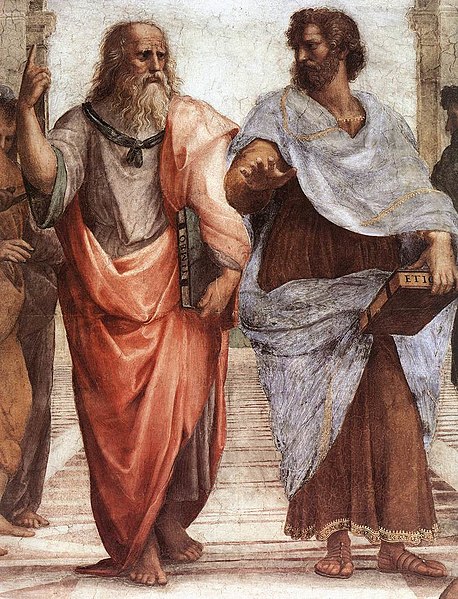A conscience is a cognitive process that elicits emotion and rational associations based on an individual's moral philosophy or value system. Conscience stands in contrast to elicited emotion or thought due to associations based on immediate sensory perceptions and reflexive responses, as in sympathetic central nervous system responses. In common terms, conscience is often described as leading to feelings of remorse when a person commits an act that conflicts with their moral values. The extent to which conscience informs moral judgment before an action and whether such moral judgments are or should be based on reason has occasioned debate through much of modern history between theories of basics in ethic of human life in juxtaposition to the theories of romanticism and other reactionary movements after the end of the Middle Ages.
Vincent van Gogh, 1890. Kröller-Müller Museum. The Good Samaritan (after Delacroix).
Seated Buddha, Gandhara, 2nd century CE. The Buddha linked conscience with compassion for those who must endure cravings and suffering in the world until right conduct culminates in right mindfulness and right contemplation.
Marcus Aurelius bronze fragment, Louvre, Paris: "To move from one unselfish action to another with God in mind. Only there, delight and stillness."
Last page of Ghazali's autobiography in MS Istanbul, Shehid Ali Pasha 1712, dated A.H. 509 = 1115–1116. Ghazali's crisis of epistemological skepticism was resolved by "a light which God Most High cast into my breast ... the key to most knowledge."
Natural law is a system of law based on a close observation of natural order and human nature, from which values, thought by the proponents of this concept to be intrinsic to human nature, can be deduced and applied independently of positive law. According to the theory of law called jusnaturalism, all people have inherent rights, conferred not by act of legislation but by "God, nature, or reason." Natural law theory can also refer to "theories of ethics, theories of politics, theories of civil law, and theories of religious morality."
Plato (left) and Aristotle (right), a detail of The School of Athens, a fresco by Raphael
Marcus Tullius Cicero
Thomas Hobbes







